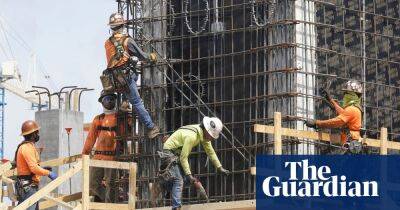‘It’s just not worth it’: why employers still can’t get staff back to the office
‘You haven’t been in the office this week. Why?” The worker in question hadn’t expected such an email from his boss. Based in Asia but working for a large US media organisation, he had been on an overseas work trip, and his failure to swipe his pass at the building’s turnstiles while he was away had triggered an alert.
This is an extreme example of business leaders straining to reverse pandemic home working habits, but it reflects an increasingly tense battle within public and private organisations.
Months after Covid restrictions in the UK were lifted, there has not been a large-scale return of office workers to their desks. Now a tug-of-war is playing out between those who wish to see flexibility about where, and sometimes when, people do their jobs become a permanent fixture, and those keen to return to pre-pandemic patterns.
One one side are the many staff who say performing their role remotely and spending less time – and money – commuting has improved their work-life balance, given them more time with family and increased productivity.
On the other side are frustrated managers at large office-occupiers who say they want to reignite their workplaces with the collaboration and creativity that comes from in-person interaction.
Many bosses had hoped the end of the summer holidays would bring more staff back to their desks. And according to property consultancy Remit, in the first full working week of September, the daily average number of employees in England and Wales working from the office hit its highest level since May 2021. But that high was just 31%. In the capital, office occupancy reached 50% on single days in the week to 9 September in the West End and, perhaps unsurprisingly, Docklands, home to many banks and
Read more on theguardian.com




















